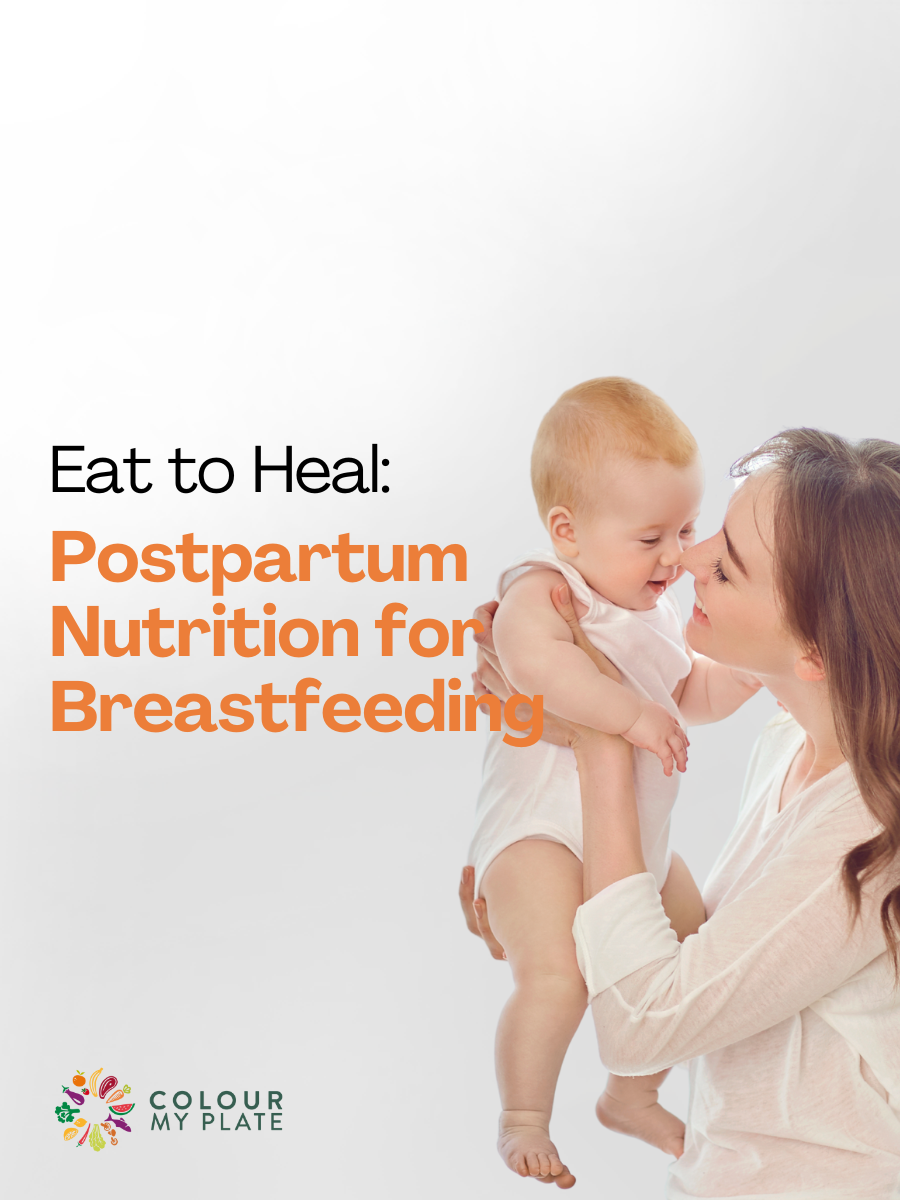
![]() 7 May 2025
7 May 2025
The first few weeks after birth can be a whirlwind, both physically and emotionally. As the body heals and adjusts, postpartum nutrition becomes a powerful tool for recovery and breastfeeding support. What a new mother eats during this time doesn’t just impact energy and mood; it also helps build a strong milk supply and speeds up healing
Let’s talk about what really matters when it comes to eating well during the postpartum period.
After giving birth, the body is in full recovery mode. It works hard to repair tissues, restore blood levels, and produce breast milk around the clock. All of this takes a lot of energy and nutrients.
Breast milk quality is closely tied to a mother’s diet. When nutrition is lacking, fatigue can worsen, moods can dip, and milk supply might decrease. Fueling up on the right foods is not just a good idea, it’s essential.
Protein helps rebuild muscle, repair tissue, and support immune function. Breastfeeding mothers need about 71 grams of protein each day.
Try to include a source of protein in every meal, like eggs at breakfast or lentils at lunch.
Good sources include:
Eggs
Chicken or turkey
Beans and lentils
Tofu or tempeh
Healthy fats are essential, especially those that support hormone balance and milk production. Omega-3s are also important for the baby’s brain development.
Try adding:
Avocados
Salmon
Walnuts
Flax and chia seeds
Whole grains and complex carbohydrates help prevent energy crashes and keep blood sugar levels stable. Oats are especially helpful and have even been linked to healthy milk supply.
Great options include:
Oats
Brown rice
Quinoa
Whole grain bread or toast
Blood loss during childbirth can lower iron levels, which may lead to exhaustion or dizziness. To help boost absorption, combine iron-rich foods with sources of vitamin C.
Iron-rich foods to include:
Spinach and kale
Lentils
Beef or lamb
Fortified cereals
Breastfeeding increases fluid needs, so drinking enough is key to keeping milk flowing. The recommendation is around 3 liters of fluids a day for nursing mothers. Keep a bottle of water nearby or enjoy herbal teas and broths throughout the day.
Nutrients like vitamin D, calcium, and folate are essential for bone strength, immune support, and overall health. Supplements may help, especially with vitamin D, which can be hard to get from food alone.
Include a variety of:
Leafy greens
Citrus fruits and berries
Dairy or fortified plant-based alternatives
Whole grains and fortified foods
Postpartum nutrition is not about being perfect. It’s about choosing foods that help new mothers feel stronger, more energized, and better supported through this big life change. Eating well is one of the most caring things a mother can do for herself and her baby.

We noticed you haven't completed your delivery details.

Your message is sent